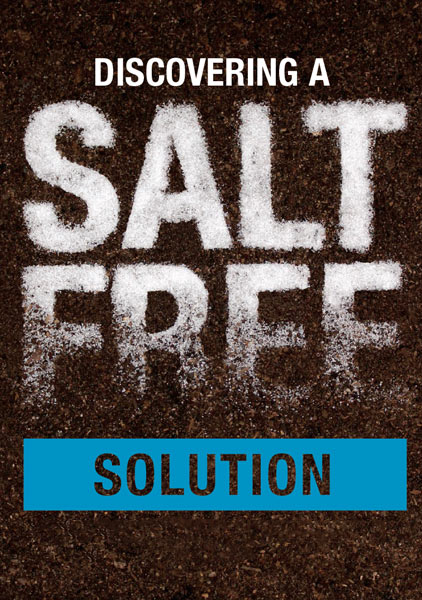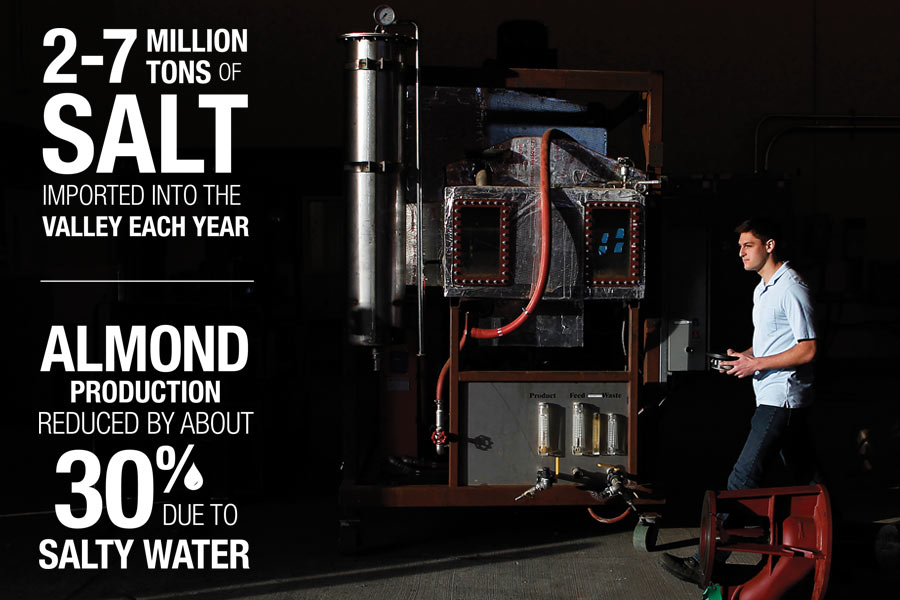Researchers find success in removing salt from ag water
by Rebecca Wass
The water supply in parts of California is threatened by high levels of salt — affecting Central Valley agriculture and drinking water. And Fresno State researchers are working to find a solution.
Faculty and students in the University’s Lyles College of Engineering are experimenting with ways to treat the Valley’s agricultural drainage water for reuse through water desalination. The process removes salt and minerals and results in clean water that can then be reapplied to crops and potentially used for drinking water.
The research could have far reaching implications for the Central Valley.
“If successful, this process will be part of an overall saline water treatment system,” says Dr. Karl Longley, civil engineering professor and dean emeritus of the Lyles College. “If the Central Valley is to remain a viable economic unit, a solution must be found for its increasingly severe salt problem.”
The research team used a vapor compression distillation unit acquired in 2013 to complete a pilot project that determined the unit to be effective at producing quality water through desalination. The extracted salts are also valuable, in that they can be sold to chemical processors.

According to a Central Valley Salinity Alternatives for Long Term Sustainability report, 2 million to 7 million tons of salt are imported into the Valley each year and used for agricultural, industrial, urban and domestic purposes. These uses range from soil amendments and plant fertilizers to water softeners and swimming pool chlorine.
Longley says salt from the San Joaquin River and Sacramento River basins finds its way to the rivers and sea, but because the Tulare Lake Basin has no means of exporting salt, it accumulates in Valley groundwater and soil.
The potential effects are “a land where the water is not fit to drink and a land not capable of growing crops,” according to the report.
In certain areas of the Valley, almond production was reduced by about 30 percent due to the salty water,” Longley says.
Walter Mizuno, a mechanical engineering lecturer for the Lyles College, is working with Longley and student intern Ridge Bertuccio, a researcher on the project.
“Water desalination piqued my interest because of the agricultural aspect, considering I grew up on a farm,” Bertuccio says.
A second generation of the vapor compression desalination unit is being engineered to improve the energy efficiency of the process thanks to a $286,000 grant.
“Our research team hopes to develop a sustainable process to reuse this water,” Mizuno says, “which means we would not have to depend as heavily on our limited supply of clean water from other sources — ultimately benefitting all Californians.”
— Rebecca Wass is a communications specialist for the Lyles College of Engineering at Fresno State.






